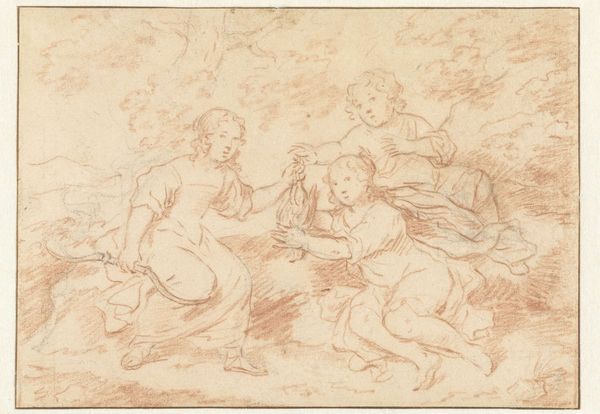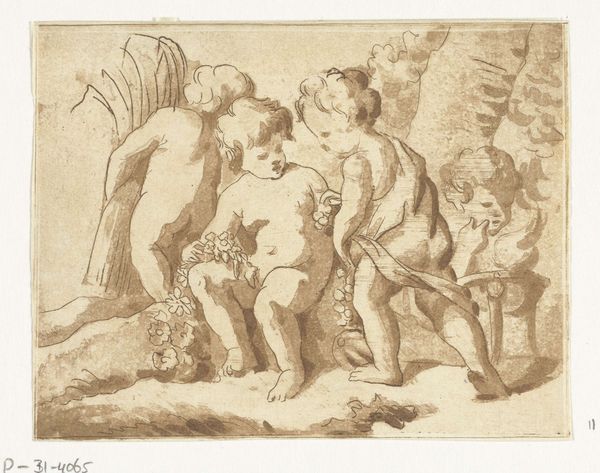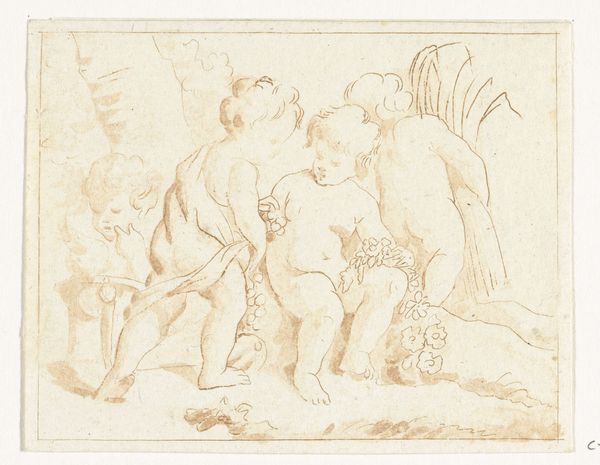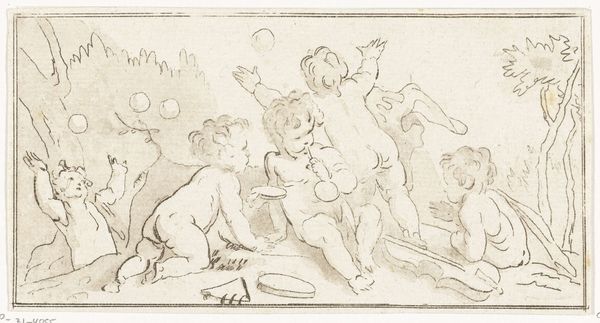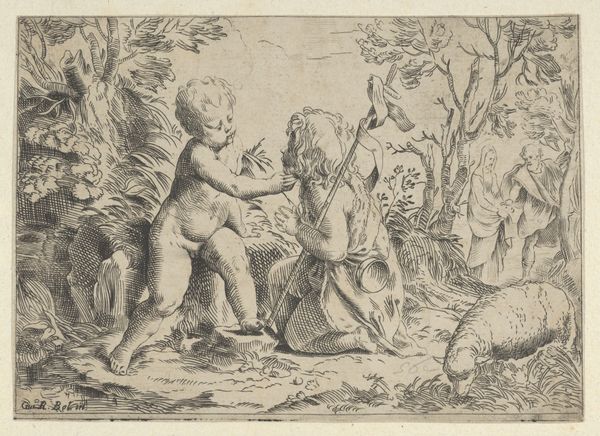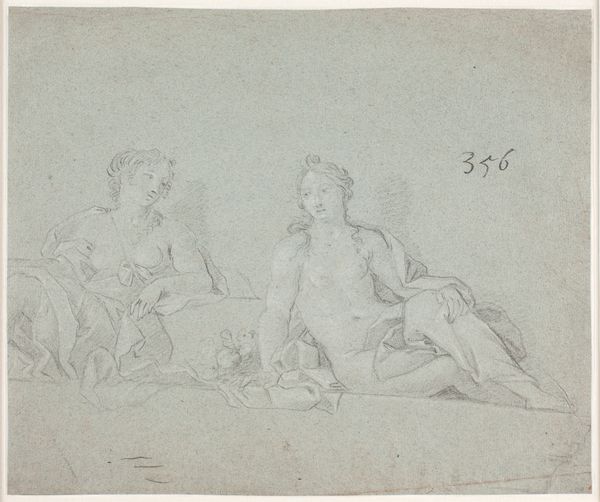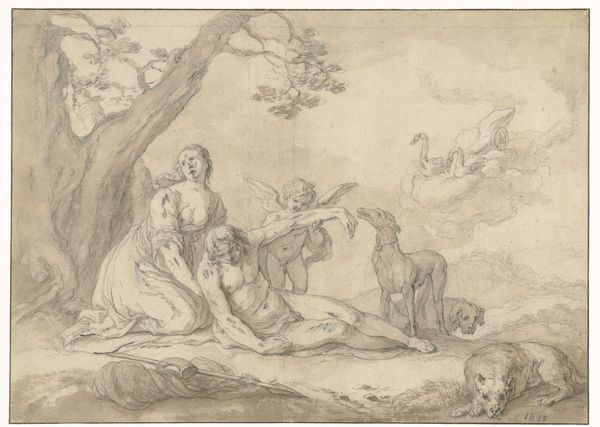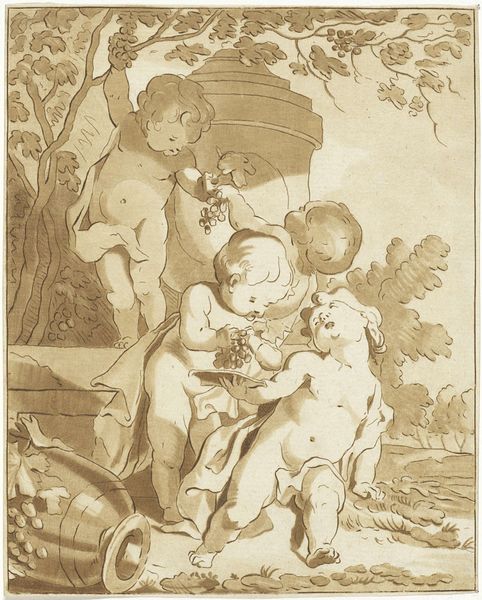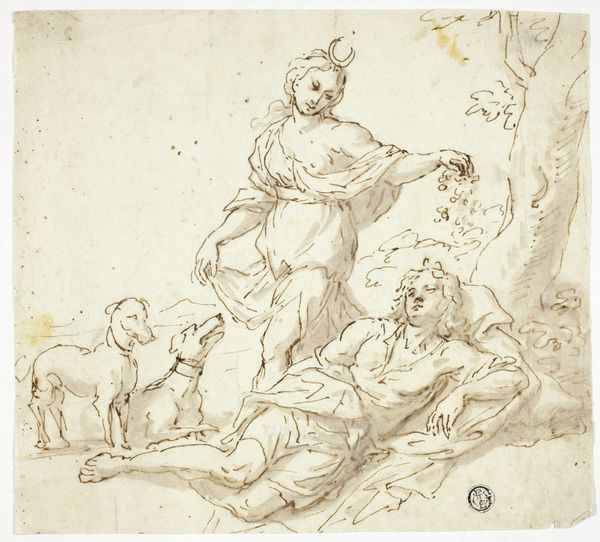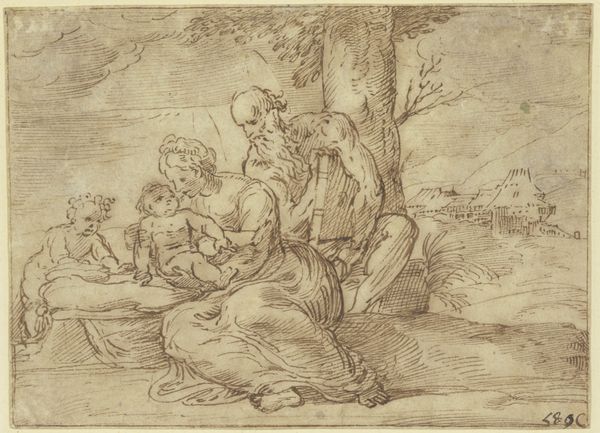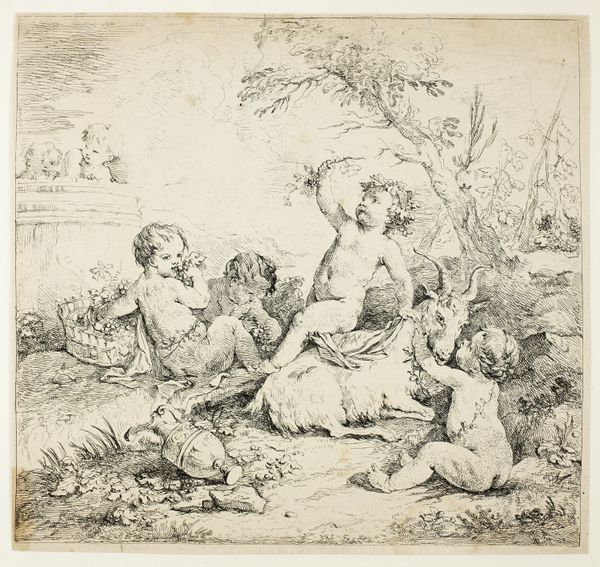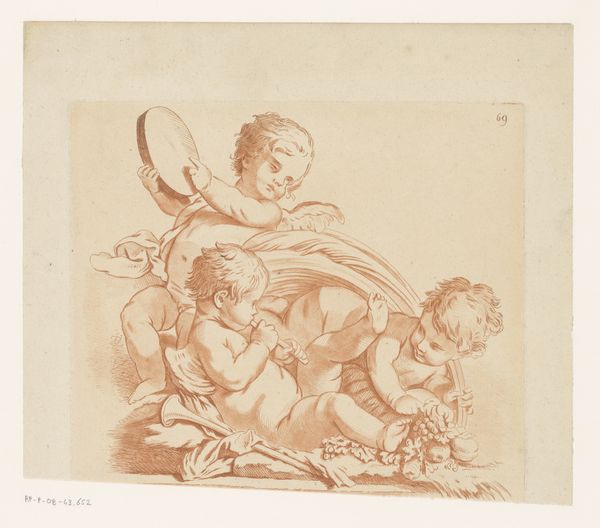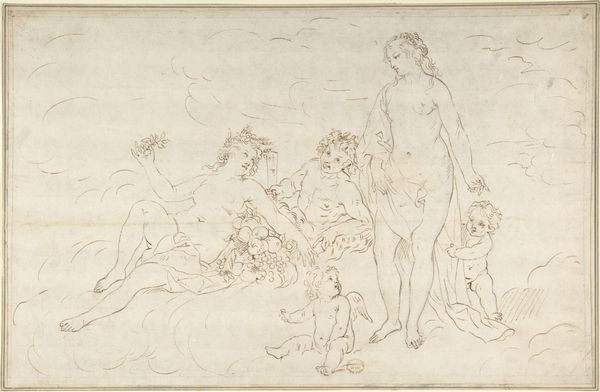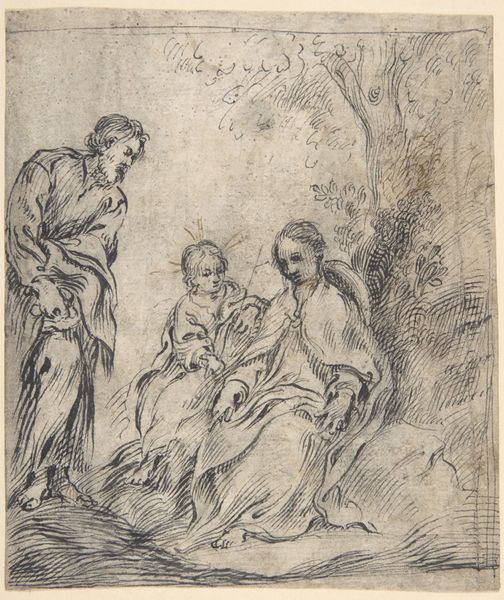
drawing, pencil
#
drawing
#
imaginative character sketch
#
light pencil work
#
quirky sketch
#
pencil sketch
#
landscape
#
figuration
#
personal sketchbook
#
sketchwork
#
romanticism
#
pen-ink sketch
#
pencil
#
sketchbook drawing
#
genre-painting
#
sketchbook art
#
initial sketch
Dimensions: height 60 mm, width 90 mm
Copyright: Rijks Museum: Open Domain
Pieter de Goeje sketched this drawing of a seated woman with two putti using graphite. Note the dominant visual symbols. We see a woman, likely Venus, adorned with floral elements, accompanied by two putti. These aren't mere decorations. The garland of flowers, held by the cherubic putti, evokes notions of fertility and abundance, deeply rooted in ancient pagan rituals celebrating nature's cycles. These motifs reappear throughout art history, like echoes in a grand hall. We see them in Renaissance paintings, Baroque sculptures, and even in contemporary works. Consider, for example, how the image of Cupid, often depicted as a putto, evolved from a symbol of divine love to a playful emblem of romantic affection. The flower garland, initially a sacred offering, morphs into a decorative element. It's as if these symbols carry within them a collective memory, resurfacing and evolving across different eras. Such imagery triggers subconscious responses, reminding us of our connection to nature and the cyclical nature of life. It is a powerful force.
Comments
No comments
Be the first to comment and join the conversation on the ultimate creative platform.
